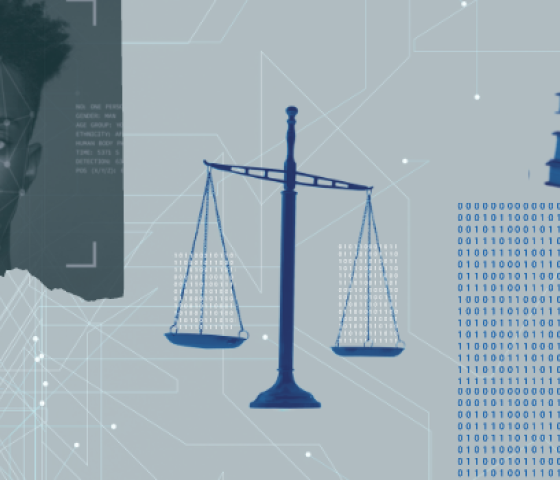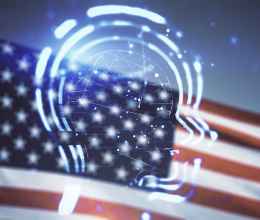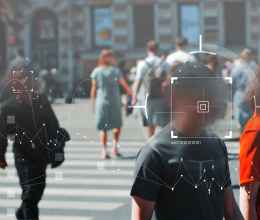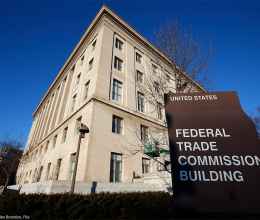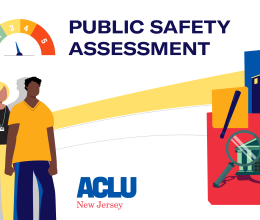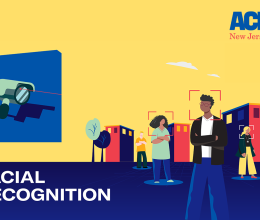There has been no shortage of facial recognition news in New Jersey in the past few months. Since the New Year, we’ve seen shocking abuses enabled by cameras that can pick peoples’ faces out of a crowd and identify them. It’s more important than ever that New Jerseyans push policymakers in their communities and the state to reign in facial recognition abuses, make the use of facial recognition transparent, and hold entities that use facial recognition accountable.
That’s not to say it’s all been bad news. We know what can happen when New Jerseyans speak up and fight back against facial recognition in the name of racial justice, privacy, and dignity. A world free of the abuses enabled by facial recognition is possible. We all need to know about what can happen when these tools are abused so we can imagine what a world free of facial recognition should look like.
Before visiting Madison Square Garden, make sure you never said anything mean about the owner: facial recognition might bounce you
When you go to a basketball game at an arena or a concert at a music venue, you enter a place of public accommodation. Even though the venue may be privately owned, you can’t be denied access because of your race, your gender identity, your religion, or other protected characteristics. Beyond that, you might expect to be subject to fair rules – don’t throw a can of beer at a performer on stage, for example.
Facial recognition, however, gives powerful people and institutions the means to control our public places according to their own agenda.
This past winter, a New Jersey lawyer visited Radio City Music Hall to see the Rockettes with her daughter’s girl scout troop. She never made it past the door — identification from the theater’s facial recognition system prompted security to bounce her from the Christmas Spectacular. Afterward, she discovered why: she and her coworkers were blacklisted by the venue owners, Madison Square Garden Entertainment, because her employer was engaged in a lawsuit against a different Madison Square Garden property. So long as that lawsuit was pending against one MSG property, she would be banned from any MSG property even though she wasn’t personally involved in the case. And she’s not the only person this has happened to.
This use of facial recognition is not merely petty — it is nothing short of radical. It is a direct attack on our ability to live free of bias, intimidation, and coercion in our public spaces.
Even though Madison Square Garden may not be in New Jersey, nothing stops this sort of abuse from happening here. As the market for facial recognition cameras grows, expect to find facial recognition cameras in more and more of our public spaces.
No money for counselors; plenty for facial recognition cameras
Another recent story highlighted how some security companies use aggressive sales tactics to push facial recognition as a response to school safety fears, with no proof that these tools make students safer or treat them fairly.
One major facial recognition vendor enlisted a Bergen County superintendent to sell its products to other school districts. The superintendent’s participation went beyond mere recommendations or product testimonials. He and another county official moonlighted as facial recognition salesmen. They leveraged their positions of public trust to generate sales leads, wine and dine other school officials, and coach them on getting the state emergency relief funding to pay for the technology for COVID-19 contact tracing purposes. The superintendent’s emails strongly suggest that “contact tracing” is not the real purpose of the tool.
With these school officials acting as surveillance salespeople, the facial recognition vendor’s cameras have permeated Bergen County schools. Students are exposed to AI surveillance – masquerading as safety measures – without any infrastructure for transparency or accountability.
There is no good proof that facial recognition has ever stopped school violence or made students safer, but much suggests that this technology is biased, makes students feel policed, and degrades the sort of supportive environment that students need to feel safe. So many of our schools lack essential funding to provide a healthy and supportive school environment, particularly in our communities of color. Public money should not be spent on expensive tools that could actually be making problems worse.
New Jersey is already fighting back: here’s how you can help
Here’s the good news: New Jerseyans are already fighting back against facial recognition. When South Orange recently moved to upgrade its surveillance cameras, the community made it known that biased and discriminatory facial recognition had no place on its streets. In response, the village president has said that the town will not be using the technology.
In order to ensure that new technologies do not infringe on our fundamental liberties, it is essential that we push back against the unchecked use of facial recognition. We are free to participate in public life without being subject to unjust discrimination or arbitrary exercises of power. We are free to participate in the democratic process to have a say in how our public spaces should be run and structured. The proliferation of tools like facial recognition harms those freedoms.
In the coming year, we will be continuing our work to fight back against harmful surveillance technology – and you can help. If you know about the use of facial recognition in your town, school, office, or even your favorite restaurant, tell us your story.
Together, we can fight against a surveillance infrastructure that stifles our ability to live free of bias and coercion while pulling resources away from things our community actually needs. We all deserve to have a say about how our future is being built, and transparency is the first step.
